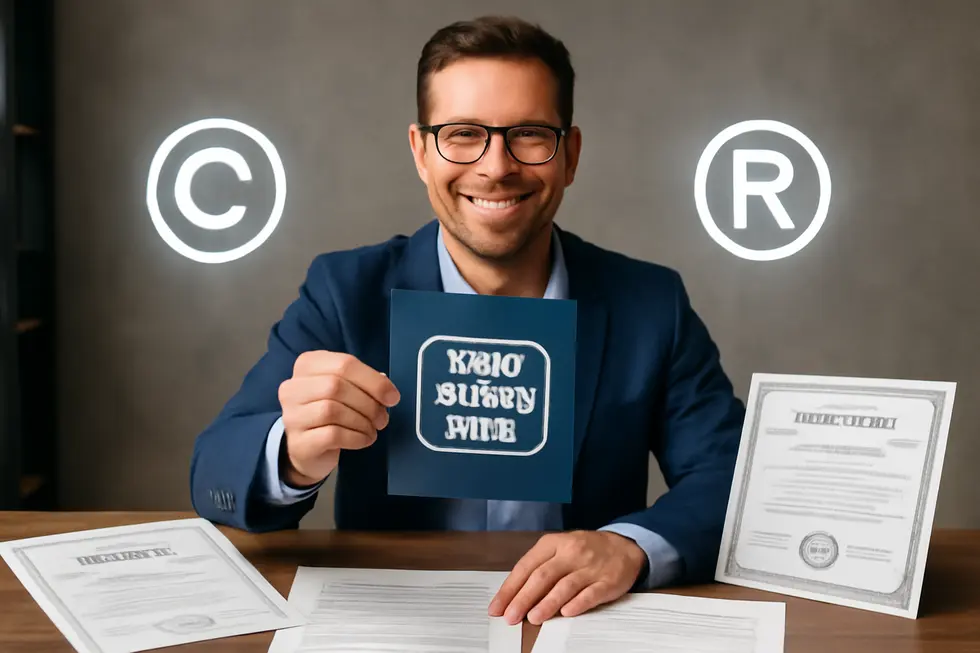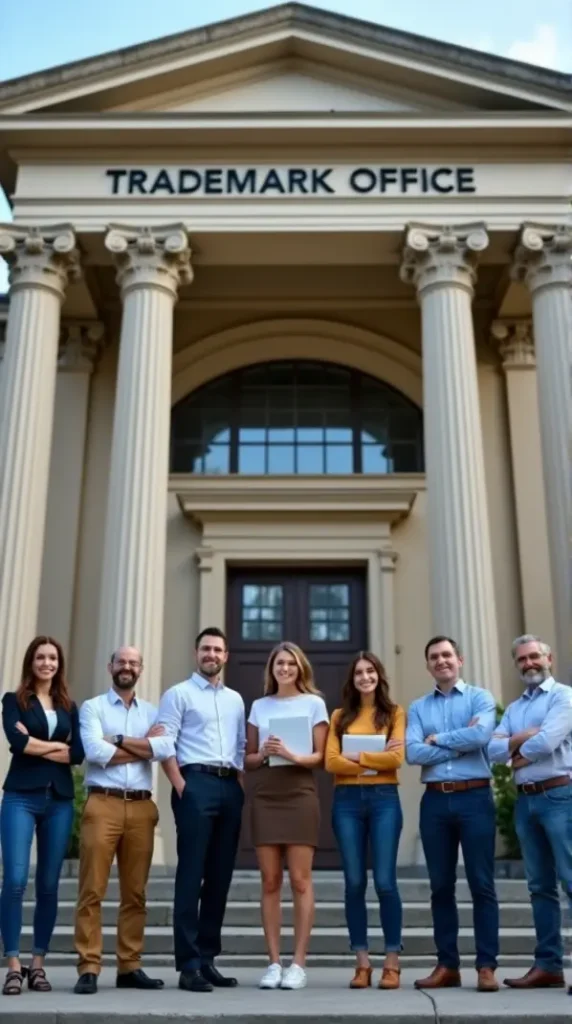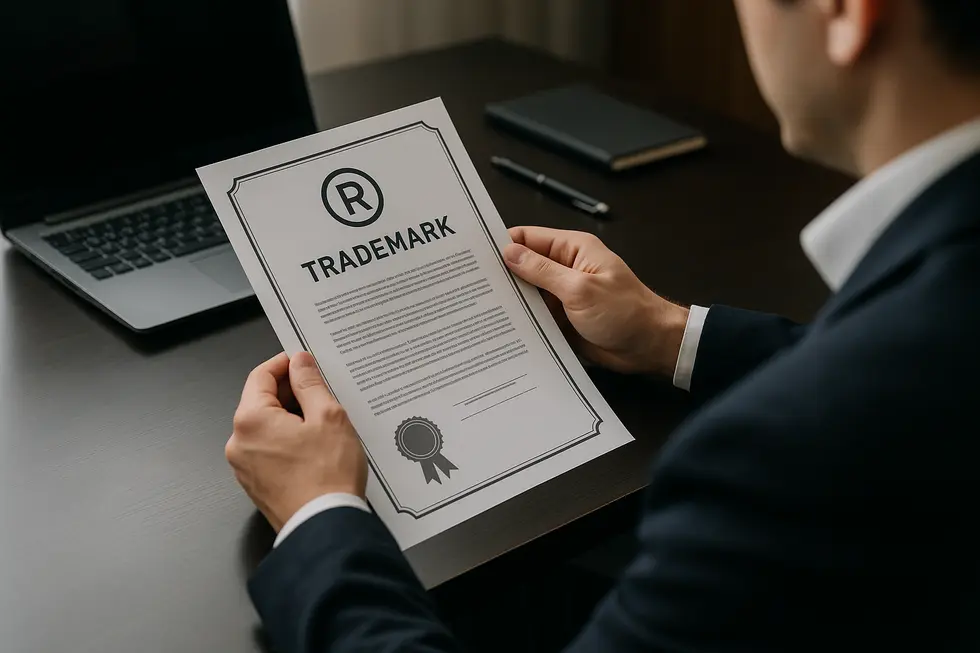导言
Business owners often seek to protect their unique sayings or slogans to strengthen brand identity and prevent unauthorized use. However, understanding the legal framework around intellectual property protection for short phrases is crucial. This exploration clarifies whether you can copyright a saying and what alternatives exist to safeguard your business’s expressions. The first chapter unpacks the legal limits of copyright protection for short sayings, explaining why copyright generally doesn’t apply. The second chapter introduces trademark as a powerful alternative protection specifically designed for slogans and phrases in commercial use. Finally, practical guidance helps business owners navigate protecting sayings in commerce effectively, ensuring your brand’s unique voice remains yours.
目录
Chapter 1: Can You Copyright a Saying: Legal Limits of Copyright Protection for Short Sayings
- Why Short Sayings Miss the Mark: Key Limitations of Copyright Protection
- Trademark Protection: The Key to Safeguarding Short Sayings Beyond Copyright
- Unpacking Key Legal Principles: Why Short Sayings Don’t Qualify for Copyright
Chapter 2: Can You Copyright a Saying: Trademark as the Alternative Protection
- Why Copyright Fails to Shield Sayings and Phrases
- How Trademark Law Shields Commercial Sayings When Copyright Falls Short
- Economic and Societal Dimensions of Protecting Sayings Through Trademarks Instead of Copyright
Chapter 3: Can You Copyright a Saying: Practical Guidance on Protecting Sayings in Commerce
- Why Copyright Falls Short for Short Sayings and How Commerce Demands Different Protection
- Trademarking Sayings: The Essential Legal Path to Commercial Protection Beyond Copyright
- Effective Legal Approaches to Safeguarding Sayings Through Trademark Protection
Chapter 1: Can You Copyright a Saying: Legal Limits of Copyright Protection for Short Sayings
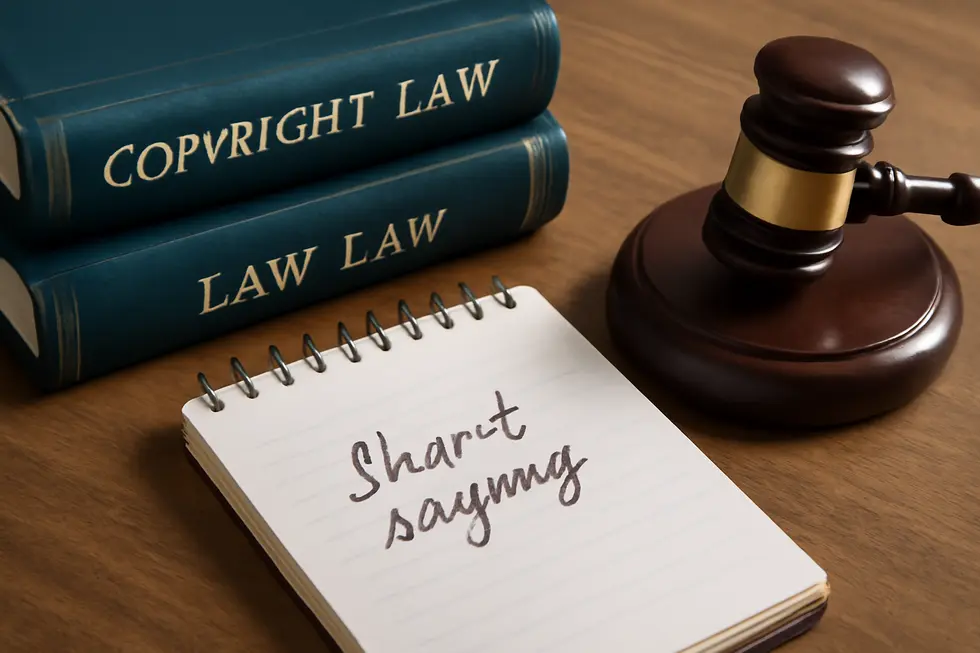
1. Why Short Sayings Miss the Mark: Key Limitations of Copyright Protection
Short sayings and phrases fall outside the realm of copyright protection because copyright law fundamentally protects original, creative expressions fixed in a tangible form—not brief or common phrases. Copyright requires a degree of originality and creativity that most sayings, slogans, or taglines simply do not possess. These short phrases often lack the creative authorship necessary to be considered protectable works under copyright statutes.
Copyright law also draws a critical line between ideas and their expression. While copyright shields unique expressions, it does not protect ideas, facts, or brief statements that convey general thoughts. Short sayings typically represent ideas or aphorisms rather than distinctive creative works, placing them beyond copyright’s scope.
This legal boundary means that even if a short saying is memorable or widely used, copyright cannot grant exclusive rights over its use or reproduction. The law does not provide a monopoly preventing others from using similar phrases, as it focuses solely on guarding against exact copying of protected works.
Instead, protection for short sayings often hinges on trademark law, which covers phrases that serve as identifiers or brands in commerce. If a saying distinguishes a product or service, trademark registration can secure exclusive rights related to its commercial use, preventing consumer confusion.
Understanding these limitations is crucial for creators and businesses seeking to protect concise expressions. While copyright safeguards complex, original works, it leaves short sayings to be secured primarily through trademark avenues. For a detailed exploration of intellectual property protections available beyond copyright, see this guide on the basics of copyright law in business.
2. Trademark Protection: The Key to Safeguarding Short Sayings Beyond Copyright
Short sayings and phrases fall outside the protective scope of copyright law because copyright safeguards original works of authorship fixed in a tangible form, such as books, music, or art. These laws do not extend to brief, commonly used expressions or slogans regardless of their creativity or popularity. While a saying’s creative presentation within a larger work may be protected, the phrase itself is not.
This limitation directs creators and businesses toward trademark law as the primary avenue to protect short sayings in a commercial context. Trademarks guard words, phrases, symbols, or designs that serve as identifiers of the source of goods or services. When a short saying is used distinctively in commerce to indicate origin, it can qualify for trademark registration and protection.
Trademark protection enables the owner to prevent others from using a confusingly similar phrase in a way that could mislead consumers about the source of products or services. However, for a saying to qualify, it must function specifically as a brand identifier rather than merely as a descriptive phrase. This protection is geographically and commercially limited, meaning enforcement applies only to the goods or services and locations where the mark is used or registered.
Defenses against trademark infringement claims include fair use exceptions, such as descriptive or comparative uses, which preserve free expression while preventing brand confusion.
Ultimately, trademark law fills the gap left by copyright when it comes to short sayings, providing a tailored and effective legal mechanism to protect commercial identity. Understanding this distinction is vital for securing intellectual property rights in slogans and phrases.
For further insight into protecting brands and slogans effectively, consider reviewing comprehensive guides on how trademarks serve as reliable brand protection tools like those found at Trademark Gold: Brand Trademark Business Protection.
The U.S. Patent and Trademark Office also offers detailed resources explaining how trademarks work and the registration process. This knowledge complements the understanding of copyright limitations relating to short sayings.
3. Unpacking Key Legal Principles: Why Short Sayings Don’t Qualify for Copyright
Copyright law is fundamentally designed to protect original works of authorship that are fixed in a tangible medium. This means the work must be independently created and exhibit at least a minimal level of creativity. Examples include books, music, films, and artistic works that exist in a physical or digital form that can be perceived over time. Short sayings, phrases, slogans, or titles generally do not meet this threshold. The U.S. Copyright Office explicitly excludes “names, titles, and short phrases” from copyright protection because they typically lack the necessary originality and creativity. Their brevity means they do not embody enough expressive content to qualify as protectable works.
To be copyrightable, a work must be fixed in a tangible medium — recorded or embodied in a way that allows it to be perceived repeatedly. Short phrases often exist only as fleeting expressions, which fail this fixation requirement. Even when written down, the limited originality in a short saying means it cannot be protected as a creative work. This legal framework prevents overextension of copyright to commonplace expressions that belong in the public domain.
While copyright law is clear on these limits, it is important to understand that protection can still be available under trademark law if a short saying serves as a distinctive identifier of goods or services. This difference arises because trademark law protects commercial source indicators rather than creative expression. For further technical insights on copyright’s scope and its differentiation from trademarks, legal resources such as the official 美国版权局 provide detailed explanations.
Overall, the requirement for originality and fixation in copyright law firmly excludes short sayings and phrases. Those seeking protection for such expressions should explore trademark options, as discussed in previous sections.
Chapter 2: Can You Copyright a Saying: Trademark as the Alternative Protection
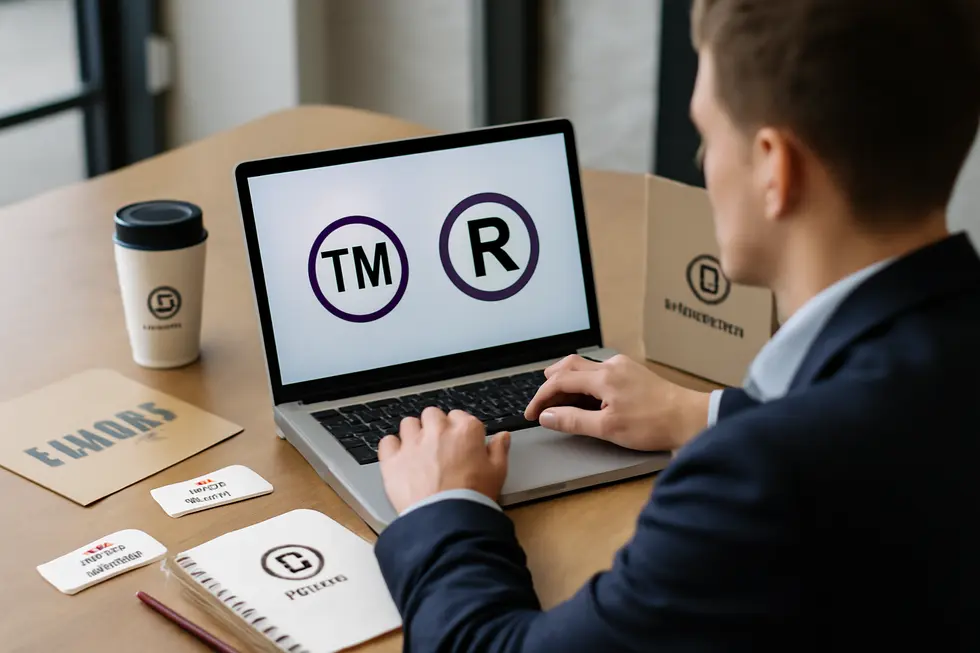
1. Why Copyright Fails to Shield Sayings and Phrases
Copyright law is designed to protect original works of authorship fixed in a tangible form, such as books, music, films, and artwork. However, short sayings, slogans, and phrases do not fall within this scope because they lack the necessary originality and creative expression. These brief expressions are considered too minimal and common to qualify as original works. The law emphasizes that copyright does not cover ideas, facts, or names, but rather the unique expression of ideas, which short sayings generally do not provide.
Once a creative work is fixed in a tangible medium, copyright protection vests automatically and lasts for an extended term, often the life of the author plus 70 years. Still, this protection explicitly excludes short expressions because they fail to meet the threshold of creativity required. Titles, slogans, and brief phrases are generally seen as merely functional or utilitarian—tools to convey simple messages, not artistic expressions.
Because copyright cannot protect these short expressions, those seeking to safeguard sayings used in commerce usually turn to trademark law instead. Trademarks cover words, symbols, or phrases that uniquely identify the source of goods or services, preventing consumer confusion and unauthorized use. Unlike copyright’s focus on protecting creative content, trademark’s protection revolves around branding and marketplace identifiers.
This fundamental difference explains why copyright protection does not extend to sayings, and why trademark law often serves as the more appropriate legal safeguard for slogans and short phrases. For those interested in understanding these limitations more deeply, a useful resource is this legal overview of protection for taglines and short phrases.
2. How Trademark Law Shields Commercial Sayings When Copyright Falls Short
While copyright law explicitly excludes short sayings from protection due to their lack of originality and fixed creative expression, trademark law offers a vital alternative for safeguarding such phrases when they serve as commercial identifiers. Trademark protection is tailored to preserve words, phrases, and slogans that distinguish goods or services in the marketplace, allowing brands to maintain exclusive rights over distinctive sayings that signal their source to consumers. This legal framework requires that a saying be sufficiently distinctive—meaning it should avoid genericness or mere descriptiveness without secondary meaning—and actually used in commerce as a brand identifier to qualify for trademark protection.
Unlike copyright, which protects original artistic or literary works fixed in tangible form, trademark rights stem from the practical need to prevent consumer confusion about the origin of products or services. Even without formal registration, a business can acquire common law trademark rights through consistent commercial use of a saying in connection with goods or services. However, federally registering a trademark significantly strengthens these rights by granting nationwide protection, public notice, and enhanced enforcement remedies against unauthorized use.
This distinction between trademark and copyright is critical for understanding how to protect sayings legally and effectively. When a short phrase functions as a slogan or brand hallmark, trademark law fills the gap left by copyright’s limitations. For businesses and individuals seeking to protect their sayings as part of their brand identity, pursuing trademark registration is the most appropriate and pragmatic strategy. Doing so secures exclusive commercial use and helps maintain clear consumer association, which is fundamental to brand value and marketplace clarity.
For more detailed insight into how trademarks protect brands and sayings, see Legally Protected Brand Trademark.
Source: LegalZoom – Trademarks vs Copyrights: Which One Is Right for You?
3. Economic and Societal Dimensions of Protecting Sayings Through Trademarks Instead of Copyright
Choosing trademark protection over copyright for sayings carries profound economic and societal consequences rooted in the distinct aims of each legal framework. Economically, trademarks safeguard brand identifiers—such as slogans—that distinguish goods and services, enabling businesses to cultivate lasting brand equity and consumer loyalty. This protection can endure indefinitely, provided the mark remains in active use, contrasting sharply with copyright’s limited term and its focus on original creative works rather than short phrases. By securing trademark rights for a saying, companies effectively monopolize that phrase in commerce, gaining competitive advantages that can translate into significant market dominance.
However, this monopolization may reduce competition by restricting similar uses, potentially raising barriers for new market entrants. Unlike copyright, which can create deadweight loss by limiting access to creative content, trademarks concentrate on source identification and thus may not directly impact product pricing but can curb competitors’ ability to use language freely in marketing. The costs associated with registering and enforcing trademark rights also impose economic burdens, particularly on smaller businesses navigating these legal protections.
On a societal level, trademarking sayings promotes consumer clarity, allowing shoppers to easily identify trusted sources, which fosters marketplace confidence. While this enhances brand transparency, it can simultaneously limit the commercial use of common language, raising questions about the balance between protecting brands and preserving free expression. Trademark protection drives businesses to innovate in branding and marketing strategies instead of creative content, reshaping how originality influences commerce.
Moreover, trademarks play a vital role in advancing sustainability efforts by protecting unique identities of environmentally focused products and encouraging collaborative innovation. This legal tool supports scaling sustainable brands through clear ownership rights, which is less achievable under copyright law.
Ultimately, protecting sayings via trademark shifts the focus from creative expression to commercial identity, bringing economic benefits of durable brand distinction and societal gains in consumer trust, while also raising concerns about competition and language restriction. For deeper insights on how trademarks differ from copyrights and their influence on intellectual property strategy, review this detailed overview of trademark protection.
Chapter 3: Can You Copyright a Saying: Practical Guidance on Protecting Sayings in Commerce

1. Why Copyright Falls Short for Short Sayings and How Commerce Demands Different Protection
Copyright law is designed to protect original creative works fixed in a tangible form, such as books, songs, and movies. However, when it comes to short sayings or phrases, copyright protection generally does not apply. This limitation arises because copyright requires a certain threshold of originality and creativity, which brief expressions like slogans or everyday sayings typically lack. These short phrases are considered too common, minimal in text length, and not sufficiently original to be protected as creative works under Title 17 of the U.S. Code. As a result, copyright cannot prevent others from using the same short phrase, leaving a gap in protection for those relying on catchy or meaningful sayings.
Despite these restrictions, protection for sayings used in commerce is available through trademark law. Trademarks protect elements that indicate the source of goods or services, including names, logos, slogans, and even sounds, when used to distinguish one business from another. If a short saying functions as a brand identifier, it can be registered as a trademark, granting the owner exclusive rights to its use in connection with specific products or services. This legal distinction is critical for anyone seeking to protect commercial phrases or taglines, as trademark registration provides enforceable rights that copyright does not.
For example, famous slogans and even non-textual marks like distinctive sounds have been successfully trademarked to safeguard brand identity. Trademark registration typically lasts ten years with renewal options and serves as the practical avenue for protecting commercial sayings. Understanding the boundary between copyright’s expression protection and trademark’s source-identifying function clarifies why copyright is insufficient for short commercial sayings, and why trademark law is the preferred legal tool.
For more detailed insights on protecting creative works and understanding copyright limitations, see Copyright Protection for Books, Movies & Songs.
External resource: Title 17 U.S.C. – Copyright Law.
2. Trademarking Sayings: The Essential Legal Path to Commercial Protection Beyond Copyright
While copyright law excludes short sayings and phrases from its protection, trademark law offers a clear and effective alternative for securing commercial rights in these expressions. Copyright safeguards original artistic and literary works fixed in tangible mediums, such as books and films, but short phrases generally lack the originality and substance to qualify. Instead, when a saying serves as a brand identifier—often as a slogan linked to goods or services—trademark registration becomes the practical tool to establish exclusive rights.
Registering a trademark for a saying allows the owner to prevent others from using identical or confusingly similar phrases in commerce, thereby preserving brand identity and market distinction. Even before federally registering a trademark, using the ™ symbol can assert common law rights, though this offers limited legal protection. Federal registration, however, confers significant advantages, including nationwide legal recognition and a stronger stance in infringement disputes.
Trademark protection covers words, phrases, logos, and symbols that indicate the source of goods or services, distinguishing them from competitors. This legal framework is specifically crafted to prevent marketplace confusion and protect business goodwill, unlike copyright, which addresses creative expression content. Disputes arising from conflicting trademarks over sayings are resolved primarily through court proceedings or arbitration, depending on the parties’ agreements.
For anyone seeking to protect a saying commercially, especially as a brand element, pursuing trademark registration is the sensible and legally sound strategy. Understanding this distinction is crucial to safeguarding intellectual property effectively. For more detailed insights on brand protection through trademarks, visit 品牌商标商业保护.
3. Effective Legal Approaches to Safeguarding Sayings Through Trademark Protection
Copyright laws do not extend protection to short sayings or phrases because they lack the originality and creative expression required for copyright eligibility. Copyright covers works like books, songs, and films, which involve a substantial level of creativity fixed in a tangible medium. Sayings, slogans, or short taglines rarely meet this standard, making copyright an impractical avenue for protection. Instead, the most viable legal approach to protect a saying used in commerce is through trademark law.
Trademark protection applies when a phrase functions as a distinctive identifier of the source of goods or services. Registering a saying as a trademark provides exclusive rights within specific commercial categories, preventing competitors from using similar phrases that could confuse consumers. To succeed in enforcing trademark rights, the phrase must demonstrate distinctiveness—meaning it either inherently identifies the brand or has developed secondary meaning through extensive use.
Owners who register their sayings as trademarks can enforce their rights by proving unauthorized use creates consumer confusion. Legal remedies include cease-and-desist demands, injunctions to stop infringement, and monetary damages. Although less common, trade dress protection might also apply if a phrase is integrated into a unique packaging or design that distinguishes products.
It’s important to note that parody or satire involving a saying may be protected under free speech considerations, but this does not confer copyright or trademark rights to the saying itself. Thus, business owners seeking to shield their slogans or catchphrases should focus on trademark registration and enforcement strategies, as these offer practical and enforceable protections.
For a more thorough understanding of how trademark law safeguards commercial identifiers, consult resources like 受法律保护的品牌商标. This direction ensures that protections align with the legal realities governing short sayings and commercial branding.
最后的想法
While it might seem intuitive to copyright a catchy phrase or a memorable slogan, copyright law does not extend to short sayings or titles due to their lack of originality and brevity. For business owners aiming to secure exclusive rights to their expressions, trademark law offers a more suitable avenue by protecting sayings as commercial identifiers associated with goods or services. Understanding these distinctions helps protect your brand’s unique voice effectively. By leveraging trademark protections and following practical registration steps, you can ensure your business’s sayings remain exclusive assets, building brand loyalty and preventing misuse. Approaching intellectual property with the right tools empowers business owners to seize complete control over their brand identity.
今天就申请商标!成千上万的人通过申请商标保护了自己的品牌。您还在等什么?开始申请商标吧!
关于我们
The globe’s top website for registering trademarks and safeguarding your brand, name, logo, or slogan. We streamline the trademark application process with expert guidance and secure your intellectual property efficiently, empowering businesses to protect what makes them unique.

